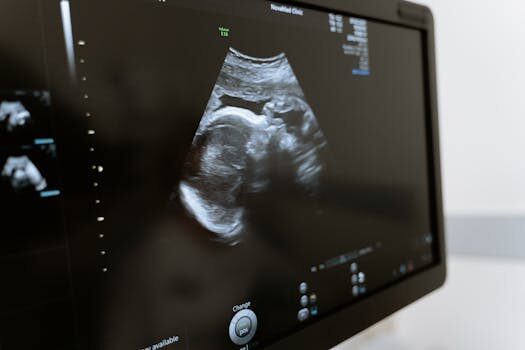Does pregnancy make me prone to motion sickness?

Pregnancy can bring about many changes in a woman's body, and one of the lesser-discussed issues is motion sickness. Does pregnancy make me prone to motion sickness? This question is common among expectant mothers, especially those who have previously experienced motion sickness. Let's explore the factors that contribute to motion sickness during pregnancy and how to manage it effectively.
What causes motion sickness during pregnancy?
Motion sickness during pregnancy is often linked to hormonal fluctuations. As hormone levels, particularly estrogen, increase, the body becomes more sensitive to motion. This increased sensitivity can lead to feelings of nausea, dizziness, and discomfort.
Moreover, physical changes during pregnancy, such as weight gain and shifts in the center of gravity, can exacerbate feelings of unsteadiness. These changes can disturb the inner ear, which plays a critical role in balance and equilibrium.
Another contributing factor is the increased levels of anxiety and stress that many women experience during pregnancy. This heightened emotional state can amplify discomfort during travel or movement, increasing the likelihood of motion sickness.
What are the symptoms of motion sickness in pregnancy?
The symptoms of motion sickness in pregnancy can mimic those of morning sickness, making it essential to identify them accurately. Nausea is the most common symptom, often accompanied by vomiting. Additionally, some women may experience dizziness, increased salivation, sweating, and even headaches.

It is important to distinguish between regular motion sickness and more severe conditions like hyperemesis gravidarum, which is characterized by extreme nausea and vomiting that can lead to dehydration and weight loss. If symptoms persist or worsen, consulting a healthcare provider is advisable.
- Nausea and vomiting
- Dizziness and lightheadedness
- Increased salivation
- Headaches
- Profuse sweating
How can I manage motion sickness during pregnancy?
Managing motion sickness during pregnancy can involve several effective strategies. One option is to use acupressure bracelets, which apply pressure to specific points on the wrist that can help alleviate nausea.
Additionally, maintaining a stable posture during travel can significantly reduce symptoms. Try to sit in the front seat of a car or choose seats over the wings of an airplane, where there is less turbulence.
Staying well-hydrated is also crucial. Drinking water and consuming light snacks can help keep nausea at bay. Foods rich in Vitamin B6, such as bananas and nuts, have been shown to alleviate some symptoms of nausea during pregnancy.
What preventive measures can I take for travel during pregnancy?
When planning to travel during pregnancy, certain preventive measures can help minimize the risk of motion sickness. First, ensure that your travel plans are flexible and allow for frequent breaks.

Before traveling, consider discussing your plans with a healthcare provider. They can provide personalized advice and recommend safe medications if needed. It's also essential to avoid heavy meals before traveling, as they can exacerbate feelings of nausea.
- Plan for regular breaks during travel.
- Consult a healthcare provider for personalized advice.
- Avoid heavy meals prior to traveling.
- Choose comfortable, stable modes of transportation.
- Consider using acupressure techniques.
When does motion sickness start in pregnancy?
Motion sickness can start at different times for each individual. For many women, it may begin during the first trimester when hormonal changes are most pronounced. However, symptoms can also appear later in pregnancy as the body undergoes further physical changes.
It's not unusual for women who have never experienced motion sickness before to notice symptoms for the first time during pregnancy. Being aware of these potential changes can help in preparing for and managing symptoms effectively.
Can I take travel sickness tablets when pregnant?
While some over-the-counter travel sickness medications may be considered safe during pregnancy, it is crucial to consult a healthcare provider before taking any medication. Certain ingredients found in these tablets may not be suitable for pregnant women.
In general, non-medicinal remedies are recommended as the first line of defense. Strategies like acupressure, ginger tea, or peppermint can be utilized to manage nausea without the risks associated with pharmaceuticals.

Always discuss any medications or supplements you are considering with your doctor to ensure they are safe for you and your baby.
Common questions related to motion sickness during pregnancy
Are you more susceptible to getting sick when pregnant?
Yes, many women find that their susceptibility to motion sickness increases during pregnancy. Hormonal changes, particularly the rise in estrogen levels, can heighten sensitivity to motion, leading to increased nausea and discomfort during travel.
What are 5 warning signs of a possible problem during pregnancy?
There are several warning signs to be aware of during pregnancy, including:
- Severe abdominal pain
- Excessive vomiting that prevents you from keeping food or liquids down
- Bleeding or spotting
- Severe headaches or vision changes
- Signs of dehydration, such as dry mouth and decreased urination
If you experience any of these symptoms, it is essential to contact your healthcare provider immediately.
Are you more prone to motion sickness when pregnant?
Indeed, many women notice an increase in their tendency to experience motion sickness during pregnancy. Hormonal fluctuations and changes in the body's balance system can contribute to this phenomenon, making it important to take preventive measures while traveling.

Why am I getting motion sickness more easily?
Motion sickness may become more pronounced during pregnancy due to several factors. The body’s increased sensitivity to motion caused by hormonal changes, combined with physical alterations like weight gain and changes in the center of gravity, can lead to heightened nausea and dizziness.
Additionally, emotional factors, such as anxiety about the pregnancy or travel, may further exacerbate these feelings. Understanding the various triggers can help in managing and alleviating symptoms effectively.
In conclusion, understanding the relationship between pregnancy and motion sickness is vital for expectant mothers. By recognizing the causes, symptoms, and management strategies, women can navigate their pregnancies with greater comfort and peace of mind. Whether you are traveling or simply experiencing new sensations in your body, knowledge and preparation are key to a smoother journey.
